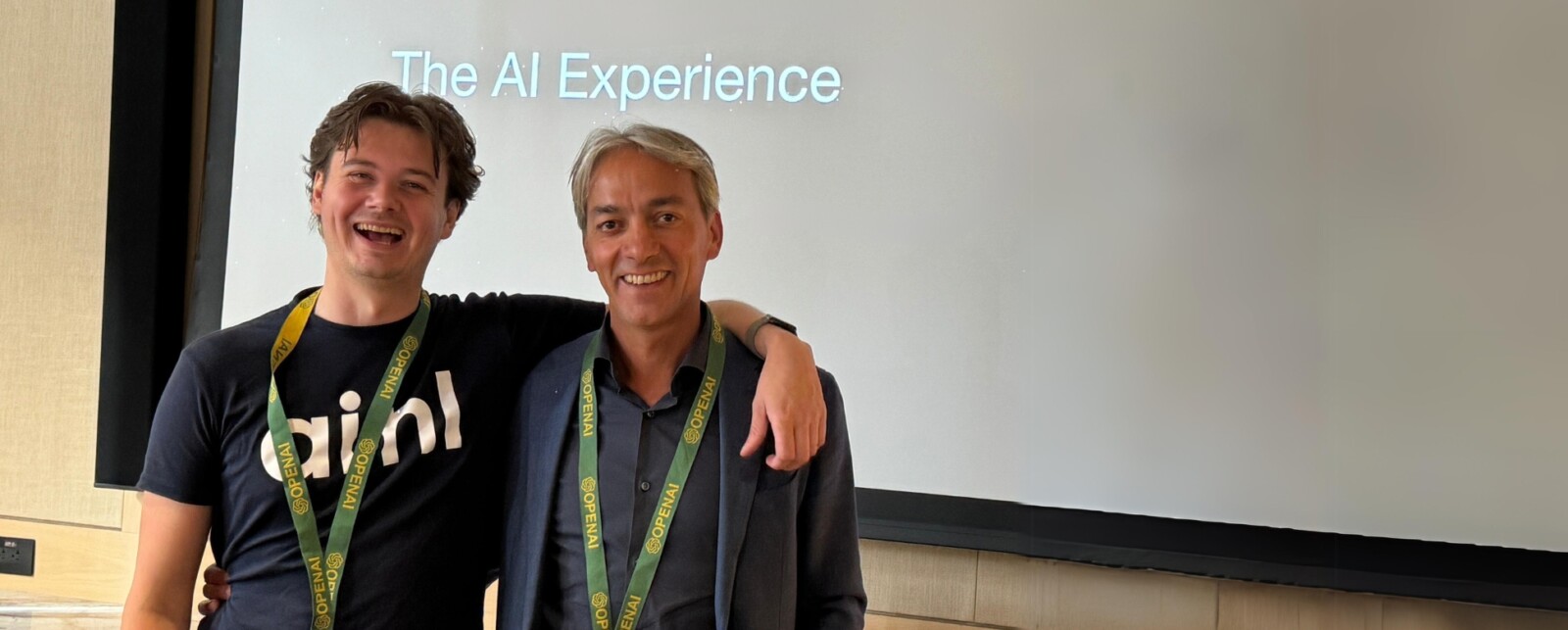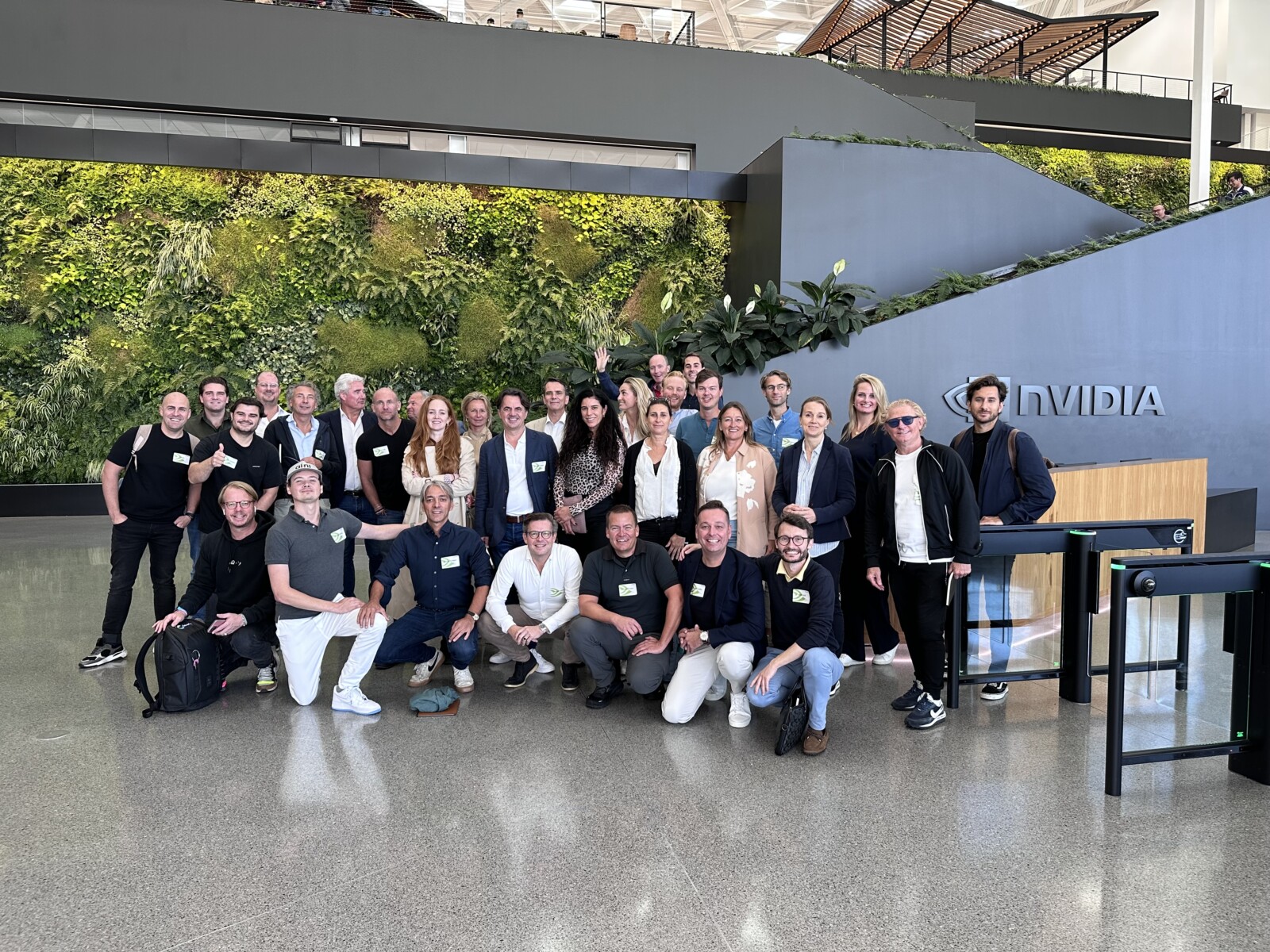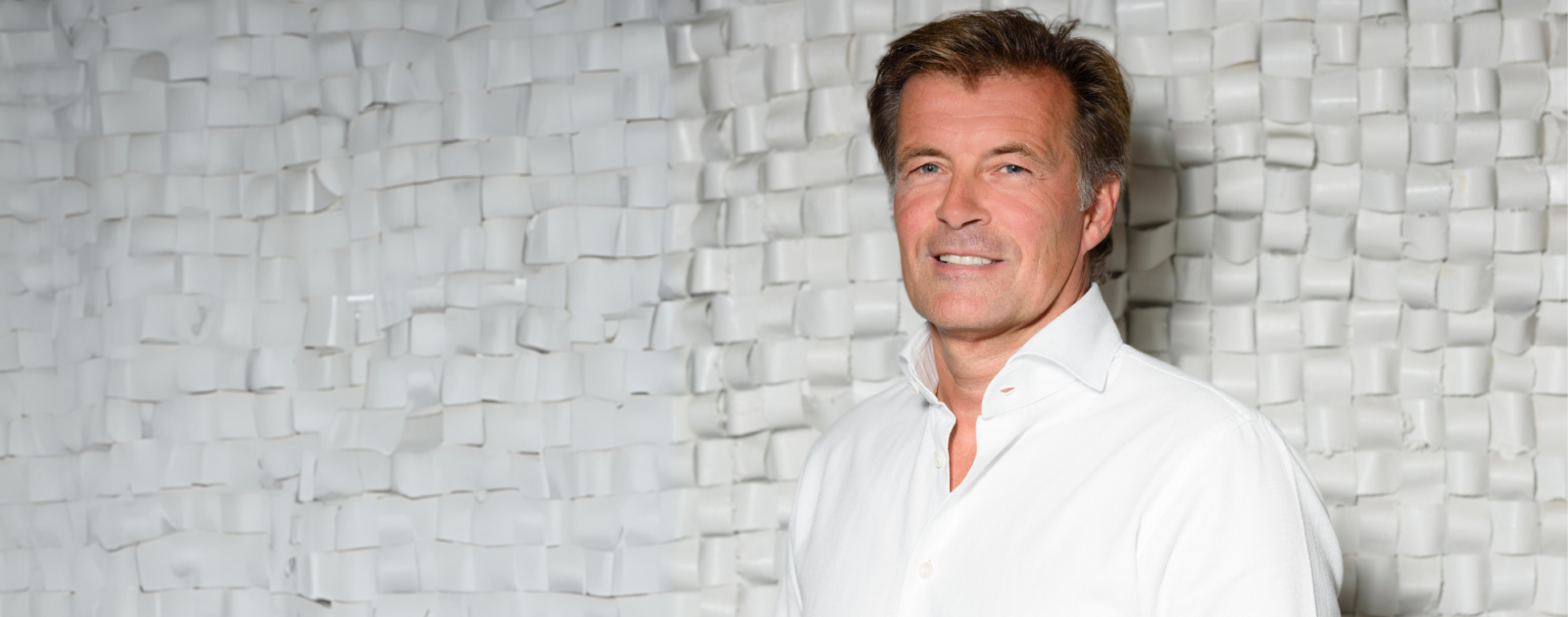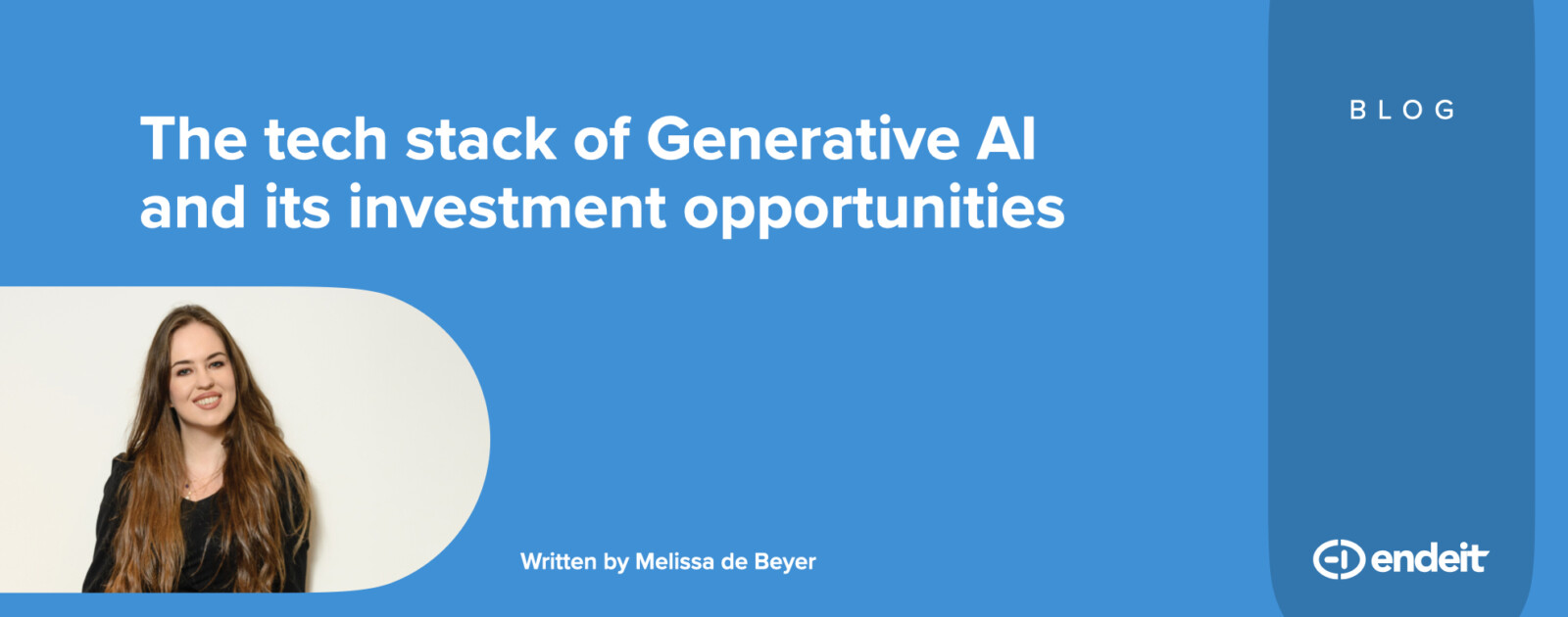“Being physically present at the places where the foundations of technology are born provides an irreplaceable experience, even for those with significant knowledge of AI.”
AI Expedition: European entrepreneurs explore Silicon Valley

Embarking on an insightful journey into the world of artificial intelligence (AI), Martijn Hamann, partner at Endeit Capital, and Remy Gieling, founder of ai.nl led exploration trips to Silicon Valley. These trips offer a unique opportunity for European entrepreneurs to gain firsthand exposure to cutting-edge AI developments. In this article, we explore their experiences and reflections on the evolving AI landscape, discussing the challenges and opportunities ahead.
The origin of the AI exploration trips
For over a decade, Endeit Capital has been organizing trips for small groups of top entrepreneurs from the Netherlands in collaboration with business travel specialists Martijn Kole and George Freriks. Martijn Hamann, partner at Endeit, shares: “The focus on an AI-specific journey emerged following the launch of Remy’s ai.nl and our investment focus on AI & Intelligent Empowerment with our new Fund III. We aimed to connect participants with the AI epicenter on the US West Coast, enriched with a Dutch and German network. We sought to offer a compact and substantively strong program to a group of top entrepreneurs, like a mini ‘AI MBA.’ Our ambition was to provide insights that would motivate participants to apply this knowledge in Europe.”
Founder of ai.nl Remy Gieling adds: “My profound interest in artificial intelligence and my engagements in Silicon Valley laid a solid foundation. Despite significant developments in AI, there was relatively little attention to this technology in the Netherlands and Europe until 2023. The potential motivated me and Endeit to organize these trips. Our visit to OpenAI, just before the launch of ChatGPT, underscored the urgency of confronting European entrepreneurs with the rapid progress in AI. These trips aimed to highlight the differences in AI approaches between Silicon Valley and Europe and stimulate a bolder attitude within the European tech community.”
In summary, Hamann and Gieling recognized the crucial importance of the trips to bridge the gap between the dynamic AI innovations in the US and the more cautious European approach. By offering new perspectives, they aim to inspire top entrepreneurs and prepare them to lead at the forefront of the AI revolution. These insights are vital for staying competitive in the rapidly changing landscape of artificial intelligence.
Why AI trips to the USA?
‘’During our first journey in 2022, the choice was straightforward: the AI Mecca was primarily on the US West Coast. The foundation is there—the ecosystem, the entrepreneurs, the research centers, and the significant funding. However, following the global GenAI hype at the beginning of 2023, important AI-hubs have also emerged in other cities in the US (and, of course, beyond), which we aim to visit, including Austin, Boston, Tokyo, and Shanghai,’’ states Martijn.
Remy Gieling’s role as an AI expert during the AI trips
As an AI expert, Remy Gieling explains how his role during the AI journeys was not just about sharing knowledge but also about deepening it. ‘’At ai.nl, we continuously track the latest trends and developments in artificial intelligence,’’ he says, emphasizing that this dedication has provided him with comprehensive insights into the pioneers of the AI revolution, including both established tech giants and emerging innovators.
His expertise, combined with Endeit’s knowledge, enabled the creation of a rich program in which participants made exclusive visits to leading companies such as NVIDIA and Airbnb and had meetings with influential figures in the AI community, like the world-famous AI artist Refik Anadol. ‘’These experiences highlight the value of our connections and our deep knowledge of the field,’’ he adds. Remy underscores a crucial value of the journeys:
The direct involvement offers a unique opportunity to understand the latest developments not just on their own but also within a broader European context, essential for fostering innovation and understanding within the local industries of the Netherlands and Germany.
Martijn Hamann’s lessons from AI in the US
During his AI exploration journeys, Martijn Hamann has gained sharp insights into global AI development, with a particular focus on the role Europe can play. “In the US, there is a strong drive for global innovation dominance, something deeply embedded in their culture,” Hamann shares. He highlights how this ambition, in combination with deep venture capital pockets since the ‘80s, creates a fertile ecosystem that produces technological world leaders.
At the same time, Hamann does not see Europe as a laggard. “Europe excels in developing technologies that meet our unique needs, often more sustainably and for more specific markets.” Martijn also expresses that there is no shortage of technological knowledge or talent in Europe, contrary to popular belief. Martijn: “Hopeful is also that the best innovations are developed by very small teams with relatively limited budgets, for example OpenAI’s ChatGPT and Dall-E (predecessor to the recently launched text-to-video Sora) and the most successful European generative AI model company Mistral.AI in France.”
Despite America’s lead in scaling AI, Hamann emphasizes that Europe’s strengths in innovation and technological development are significant. “We need to focus our efforts on collaboration and overcoming barriers such as national regulations,” Hamann advises. He envisions a bright future for Europe in AI by joining forces with the international community of AI entrepreneurs and academics. “By working together, we can create unique solutions that truly make a difference in the world,” Hamann concludes. His experiences underscore Europe’s potential to remain a key player in the global AI race, with a focus on specific, complex applications, like, besides Mistral (F), for example WeAviate (NL; vector databases), UbiOps (NL; training LLMs), Deeploy (NL; explainable AI), Soda.io (B; observability of data), Celonis (DE; process mining) and Aleph Alpha (DE; LLMs) to name only a few.
A few years apart: surprising differences
Reflecting on the differences between their earlier and most recent AI journeys to the US, Martijn and Remy provide a profound insight into the evolving landscape of artificial intelligence.
‘’In hindsight, our timing in 2022 was perfect; just before the generative AI hype, we visited the top AI companies in Silicon Valley. Our visit to OpenAI, just 3 weeks before they launched ChatGPT3, marked the beginning of a significant shift. Initially, OpenAI felt more like an R&D hub; with CEO Sam Altman casually welcoming us,’’ shares Martijn. This perception quickly changed. He highlights the transition from initially being overwhelmed by the technological advancements of giants such as Microsoft, Amazon, Google, Tesla, and NVIDIA to a more nuanced approach in 2023, focusing on the dual aspects of AI, including its disruptive impact on industries such as entertainment in both San Francisco and Los Angeles.
“The second trip was remarkable for its critical view on AI, highlighting the resurgence in the Valley and the almost monopolistic dominance of OpenAI and NVIDIA in the global AI ecosystem.”

Yet, the remarkable aspect was the camaraderie among Dutch and German entrepreneurs, sparking ideas and plans for European AI successes and meeting local Dutch/German AI entrepreneurs. An example he cites is ‘Contextual AI,’ founded by Dutchman Douwe Kiela, a pioneer in Generative AI, with his leading work in retrieval-augmented generation (RAG), a relatively new fundamental direction in AI for own data enterprise solutions.
Remy adds, ‘’The rapid development of technology ensures each trip to the Bay Area is unique. Despite annual visits, the continuous advancements, especially in generative AI, bring new insights and breakthroughs.’’ He elaborates on the breadth of generative AI, from language models to automation processes, noting a trend towards AI agents capable of actions like making reservations or managing contracts, marking a new wave of innovation.
During the trips to Silicon Valley, Remy witnessed the evolution of AI technologies firsthand, a significant departure from previous visits. Remy: ‘’The emergence of generative AI has been particularly striking. In the US, it’s clear that the capabilities of generative AI extend far beyond advanced chatbots, capable of automating any cognitive task. This fundamental shift was less apparent on earlier trips, which focused on incremental AI improvements. The pace and scope of current innovations, especially in the generative space, highlight a crucial moment that should influence our approach to AI in Europe.’’
Both emphasize the pace of technological evolution and that each journey provides unique insights. ‘’It’s about understanding our actions today for success tomorrow,’’ Remy concludes, underscoring the dynamics of AI development.
Adopting AI for startups and scale-ups in tech
Martijn emphasizes the importance of focusing on existing processes for scale-ups, suggesting incremental integration of AI to enhance efficiency and save costs. ‘’Don’t aim for fundamental changes immediately: learn and adapt to what AI can do for you. Assign a specific person to map out these processes and potentially develop AI tools for meaningful ROI cases,’’ he advises. He contrasts the current large, full-blown AI wave in our economies versus the early adopter Internet hype of the ’90s, highlighting AI’s direct tangible benefits, especially to incumbents and scale-ups today.
”For startups, I recommend becoming an ‘AI-first’ company from the start, utilizing the myriad of opportunities to shape your business model,” Martijn suggests, drawing parallels to the success stories of mobile-first startups like Airbnb and WhatsApp. Remy stresses agility as crucial for AI startups, especially given the vast resources available to tech giants:
“The ability to quickly pivot and embrace new strategies is essential in the fast-evolving landscape of artificial intelligence. Building a team capable of swift adaptation can make the difference between success and failure.”
The future of AI
Martijn has mixed feelings about the future of AI: ‘’Sometimes I worry about the unpredictability of Generative AI. What will it mean for humanity, trust, and the authenticity of society? How do we control human traits uniquely, which are now commoditized by Generative AI, eg the power of computing, language logic and solution thinking. AI can do all this better and faster. But still, these human traits are ultimately in safer and more creative hands with us. Moreover, how do we sustain democratic dialogue in society without the noise of fake news? And what is the balance between AI usage and privacy? After the initial enthusiastic hype, it’s time to have a healthy skepticism, for example, by assuming that (public) large language models (LLMs) are unsafe until proven otherwise. A good approach now is, for instance, OpenAI with their latest Text-to-Video product, Sora, to clearly shield the product from the outside world, conduct more extensive testing in a small group (“red teamers”), and address IP/content rights (C2PA).’’
Martijn also sees opportunities: “It’s also “reassuring” that AI knows everything about calculating probabilities but cannot understand the actual causes of its calculations. In that sense, there is no intelligence in AI. Human intelligence remains an unknown black box where our creativity remains unparalleled. Our human creative intelligence can now be further expanded by the most outstanding innovation so far with AI. The terminology of AI as an “AI buddy” or “co-pilot” best describes how we should embrace AI as a tool.’’
From an expert point-of-view, Remy adds: ‘’We are only at the beginning of a transformative journey where artificial intelligence will drastically change every aspect of work, creativity, and decision-making. The impact of AI is so vast that no role or company will be recognizable in its current form within five years. This technological revolution promises to redefine how we perform tasks, solve problems, generate new ideas, and stimulate innovation. As we look ahead to this future, it’s clear that we are on the verge of an era where the synergy between human and artificial intelligence will propel our potential to unprecedented heights. The journey has only just begun, and the possibilities are endless.’’
We especially thank all our great Participants from Germany and The Netherlands who brought us so much entrepreneurial energy and new ideas for making these trips possible. Further, a special thank you to the fantastic AI people in Seattle, San Francisco, and LA at the many special companies, universities, and R&D centers who welcomed us so warmly.
Our next AI Innovation trip to the US will be to the newest upcoming AI hub Austin (Texas), combined with San Francisco on 7-11 Oct 2024.



